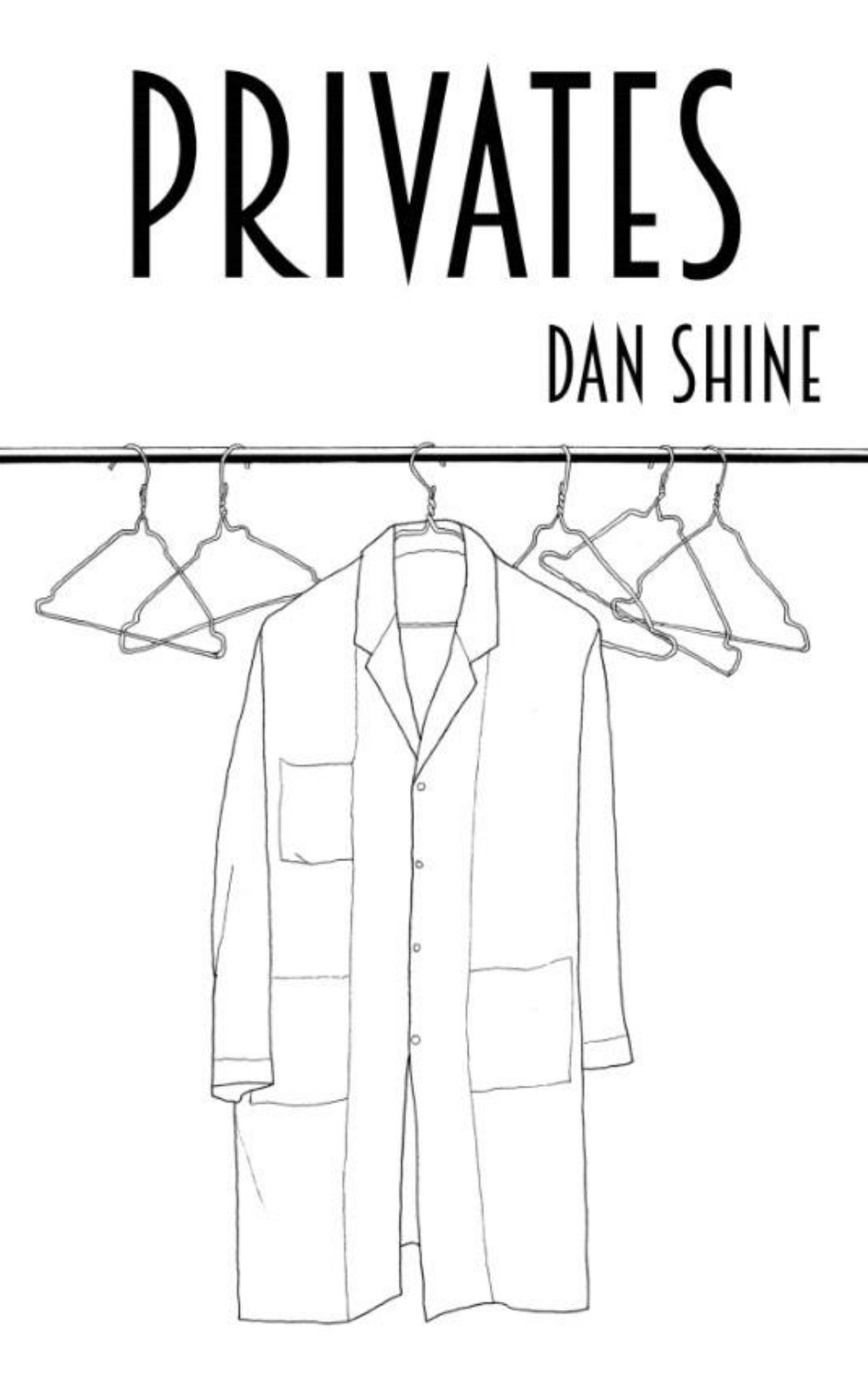 BY: DAN SHINE
BY: DAN SHINE
Grace Paine, eccentric statistician, and Amir Baum, new medical intern, see their romance caught up in an ever-bloodier power struggle for Manhattan’s leading hospital. Who brutally murdered the hospitals Vice President, found “mostly on the floor”? A Hassidic sect from Brooklyn is clearly bent on taking over. But New York’s banking elites seem to have their own plan. And who is the distant figure pulling strings? As bodies pile up around them, Amir and Grace must find themselves and each other.
CHAPTER 1
Day one—July 1
White coat and stethoscope in his backpack, heart expanding in his ears, mouth chalk.
Lookit, all I have to do today is get through today is all.
Amir Baum stepped into the self-revolving door at the hospital’s street entrance. Half way around, with a shudder and then a jolt, the door suddenly didn’t self-revolve. Stuck. Amir was trapped in a wedge of glass, a line of people forming behind him out on Manhattan’s busy Second Avenue.
He stood there a second, unbelieving that famous and formidable College Hospital and Medical School could really be blocked off from the world by so silly an obstruction. And then it dawned on Amir that in the first five seconds of his stupid internship he was the obstruction. A clog. Ugly hairball in the drain. Amir grew up small town. Afraid of attention. A thing like this felt like fate. Inevitable, even just, to this little, dark, half-an-Arab.
“Push! Push!” from outside the building and inside, but pushing was no use. “Door’s stuck! Door! Door!” but nobody was coming. So, what, some kind of electric eye thing? Amir wondered. He squatted down, counted five, and got up. Nope. Must be weight thing? Amir’s hands and feet supported him for a few seconds between the walls of glass, getting him just off the ground. And yes! The door began to move, but knocking him over and shooing him along, now unstoppable. New doctor Amir Baum crawled his first official entrance into College Hospital, on hands, on knees, entangled in his back pack, ending up on the carpet of a very formal, three-story atrium.
This was a hospital and medical school that went back nearly two centuries. Highly regarded nationally. Known internationally for its science and history. The atrium was brand new. A large, round, and free-standing entrance whose only apparent purpose was to let you know, before you went another step, that College Hospital and Medical School took its achievements very seriously.
Getting to his feet, Amir looked out upon an acre of upscale drawing room. Subtly patterned carpet, meticulously clean and dotted with gently worn leather arm chairs or couches placed singly and in clusters. Distressed coffee tables with folded newspapers. Old filaments glowing in antique floor lamps. Nothing fluorescent, all sepia burnished. Far closer to a refined gentleman’s club than a hospital entrance.
Huge fitted stones, castle-like, made up the wall of this circular atrium. Evenly spaced on the cut granite were portraits of important men, framed in gold, frock coats, long dead. Still more portraits surrounded the whole circumference over Amir’s head, in a gallery clinging to the granite and fashioned from hand cut wood. Above that gallery, flags, heraldic or military circled the space yet again. And way above, on a painted cupola, muscular gods in togas gestured to each other.
Baronial. But just where the carpet ended—three hyper-modern gateways. Soaring naked steel. Stamped black tubes. Ducts. Acrylic. Above each gateway, an industrial laser had burned right through the exposed girder to carve one huge word, dripping molten steel. Docere, entrance to the medical school, Curare, to the hospital, Discere, to the research building. Here venerable College Hospital passed the baton to its techno-destiny.
Well sure, Amir conceded as he took all this in, very whatever.
None of it had been there when he interviewed the year before. He remembered that first visit vividly, the applicant tour. A troop of blue suits, black business skirts, white shirts for everyone. But those interviews? Complete opposite of all this. That folksy floor where the dean was. That distracted dean shuffling in and out of his shabby office. The conference area? Jeez, painted-over wall anchors. Indents in the paint where cages for a blood pressure cuff used to hang. Well, he had liked all that. He liked the kind, big, hoarse Roz Yasner, secretary and Brooklyn kvetch. She gave him a Tootsie Roll and rasped in his ear, “Don’t worry, sweetheart, we’re pussycats.”
But mostly it had been those interviewers, old private docs who worked in their own offices and cared for their own patients in the hospital. White men all, but Amir grew up on that. Stretched-out suit pocket where a now antique stethoscope had been fetched and stuffed so many times. Wrong tie for the suit, chosen in the early dark. What those guys were all about was doctoring. By example but exactly, they told Amir just what he wanted to hear. That everything else—like this frou-frou hospital entrance—was pointless without the daily and passionate practice of medicine.
